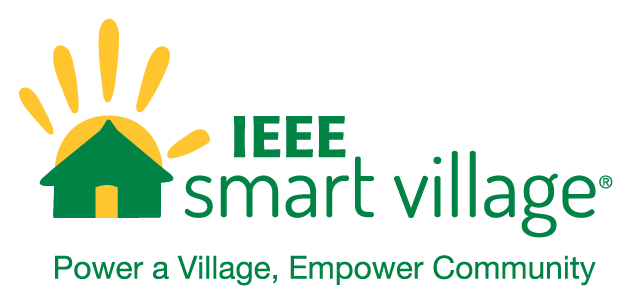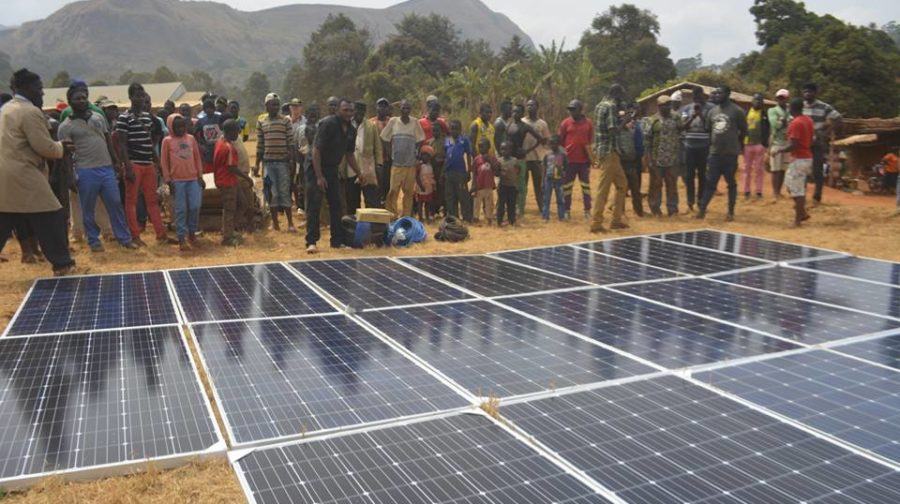PowerAfrica 2018 Celebrates ISV Volunteer Ngeh Ernest Bach
Ngeh Ernest Bach and his family come from a remote village in the Northwest region of Cameroon called Njap where he grew up with little to no access to basic electricity. Ngeh recalls his first time in a bigger town where he was amazed with the presence of electricity. To put it in perspective, according to 2014 World Bank data, Cameroon’s electricity access reached more than 88% of the population in urban areas, while in it only reached 22.2% in rural areas. Growing up with no basic electricity has triggered his desire to learn about technology and propelled him to pursue a degree in electrical engineering. The lack of electricity in his village pushed him to explore the applications of renewable energy that he is currently involved with in KONENE, ILUNG, ADERER, ABUH AND AKEH, all off grid communities.
Ngeh understood early on that in order to make a real impact, he needed to meet the right people and network to help guide his vision. In 2013, in his final years of the electrical engineering program, he was selected by the Tourchbearer Foundation which is funded by the IEEE Smart Village program. The team was tasked to carry out a test on portable battery kit systems for off-grid home lighting solutions. The summer of 2016 presented a great opportunity to Ngeh when he was selected to be an IEEE Smart Village Scholar and participate in workshops at the 3rd annual IEEE PES PowerAfrica Conference in Livingstone, Zambia. The scholarship to the conference prepared him with the right tools to learn and share experiences on what it takes to develop a renewable energy supported mini-grid system to communities like Njap.
In 2017, Ngeh would return back to the 4th IEEE PES-IAS PowerAfrica conference in Accra, Ghana as a Smart Village scholar where he presented on feasibility studies suitable for solar power plant installation and general troubleshooting. Among the most notable experiences at the PowerAfrica Conference, Ngeh highlights the opportunity to network with other like-minded professionals. At the workshop, he learned about current energy and power research programs and the latest developments in the renewable energy sector. He continues to add that sharing his experiences with others gave has given him an opportunity to develop as a leader and to learn about the amazing work that was and continues to be accomplished in his network.
Today, Ngeh is a practicing Electrical Engineer and giving back to Torchbearer Foundation on IEEE Smart Village solar electrification project as a volunteer. He recently fulfilled his dream of bringing access to electricity to his village and we couldn’t pass the chance to ask him about the project. Here is our conversation:
Tell us about your project. What was the motivation and the initial feedback from the beneficiaries of the project?
My motivation for working on an impactful project is personal. Having lived in a community that had little to no access to electricity, the difficulties I faced to carry out my studies were unbearable. Not only did this affect me, but this problem affected the community at large. It is difficult to have access to healthcare and other services that depend on electricity. These hardships inspired me to identify and develop practical solutions for communities that face similar challenges. I dreamed of providing electricity in communities so that children can avoid facing the same hardships in school and people can have access to basic medical care.
I am constantly working on my goals of building solutions to the lack of electricity in many poor villages who are unable to produce political barons who can advocate for the national grid extension to their community. I share my experiences and knowledge with the people in my community. In the domain of education, I trained 20 solar technicians that all hail from off-grid remote villages in Cameroon. These solar technicians are now working in their communities to manage small solar stations. I managed the construction of three solar power stations which distribute the produced energy on a low voltage line with capacities of 10kw, 6kw and 1.2kw respectively, thereby creating direct and indirect impacts on over 25,000 people. Currently, I am in the process of constructing three 6kw solar power plants in three off-grid communities and three 2kw mobile power plants for agriculture (MPPA) that will be used in off-grid communities for grain crushing and irrigation which is also funded by the IEEE Smart Village Program.
Tell us about the community, a rough assessment of its electricity coverage and people’s access to electricity.
Among the communities that have solar energy, about 45% of people in the community I have electrified have access to direct electricity. Barbershops, convenience stores, computer labs, administrative offices, clinics, and money transfer services are among theservices that utilize the energy source and services which benefit the community directly.
How is the project running so far? What is the future? How sustainable is it or how can it improve in its sustainability efforts?
Despite the challenges of lighting damaging the equipment, the technical parts of the project have been running successfully. My hope is that the costs associated with solar equipment decrease quickly so that we can cover more villages. Sustainability has been the major challenge due to high costs of solar equipment, and depreciation of solar materials such as batteries. Due to battery cost and its life depreciation, this greatly affects the cost of electric bills which makes it difficult for the common user in the community to afford. To replace solar panels, depreciation of the battery means that the bill is higher than that given by the national grid. This financial challenge makes it difficult for the larger population to gain access to solar electricity. Those who can afford to use solar power sometimes do so to generate income and use it only to their advantage. To prevent the monopolization of this resource and to serve a larger population, the cost of materials need to drop and policies must be implemented to ensure regulation of energy distribution.
Communities must achieve different milestones to attain sustainability in energy. I believe that without the development of battery technology life cycles, maintenance of equipment, and reduction of battery costs, it will be an uphill battle to provide sustainable solutions for the communities.
What were some of the greatest challenges in doing your project and how have you tackled them?
The most notable challenge that my team and I experienced during the project was in securing reliable transportation to move the solar equipment to the villages. Poorly maintained roads or lack of reliable transportation meant that by the time the equipment arrived at the village, there was a possibility that the equipment was totally damaged. Members of the community volunteered to transport the equipment from the point where the cars could not proceed. The volunteers transported the equipment by hand and walked long distances. This challenge delayed the execution time of the project. Additionally, the cost of equipment has been a huge burden since it limited the capacity of power stations. This also prevented the team from meeting the needs of the people who have limited electricity.
What is your message to all IEEE students, members and volunteers across Africa and globally who plan to join the PowerAfrica Conference 2018?
The PowerAfrica Conference has served as an eye opener for me in solving the energy problem on the continent. Through its medium of workshops, info sessions, networking, donors, and investors, it has helped me realizemy vision of becoming a leader in providing energy in my community.


